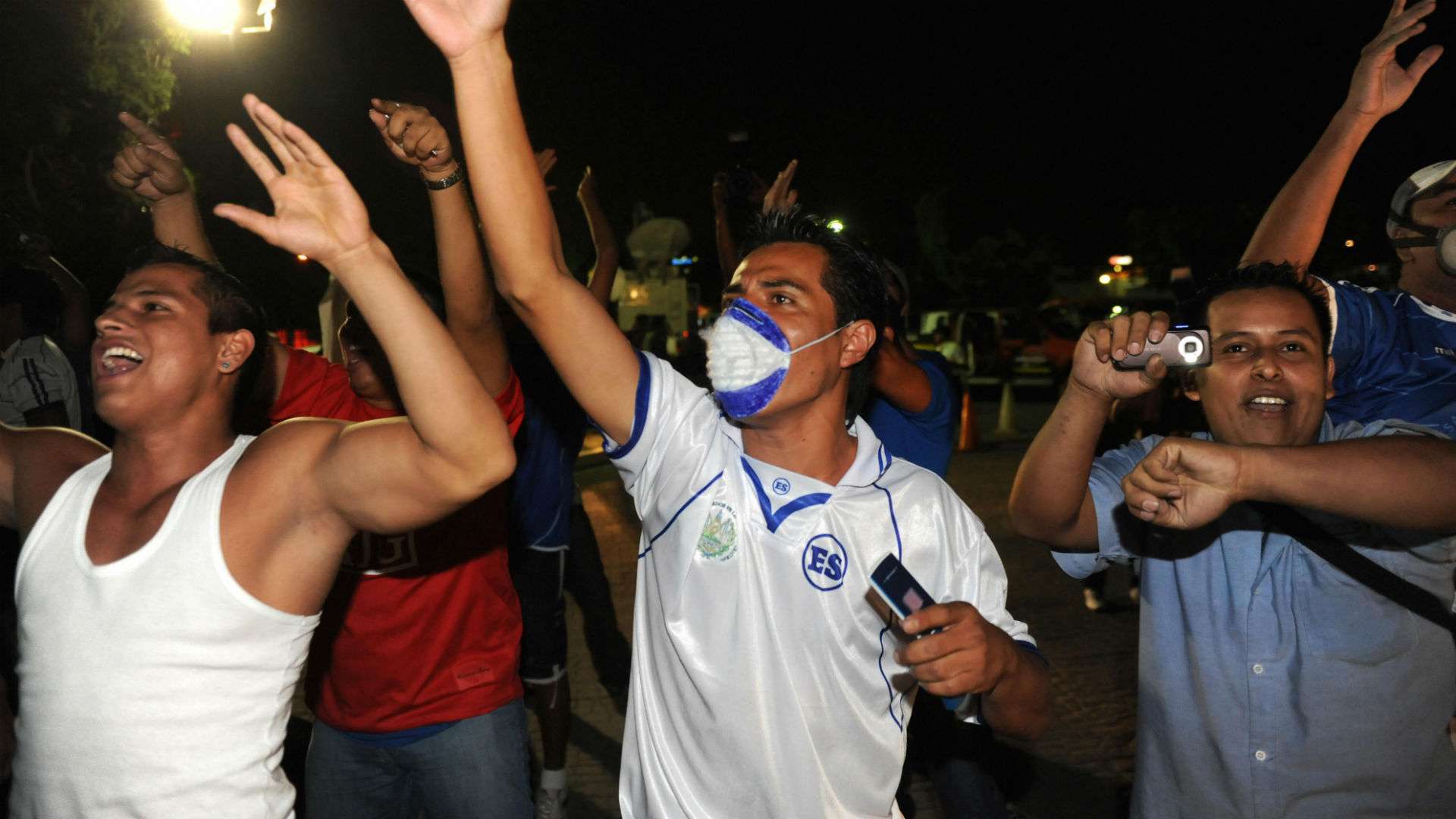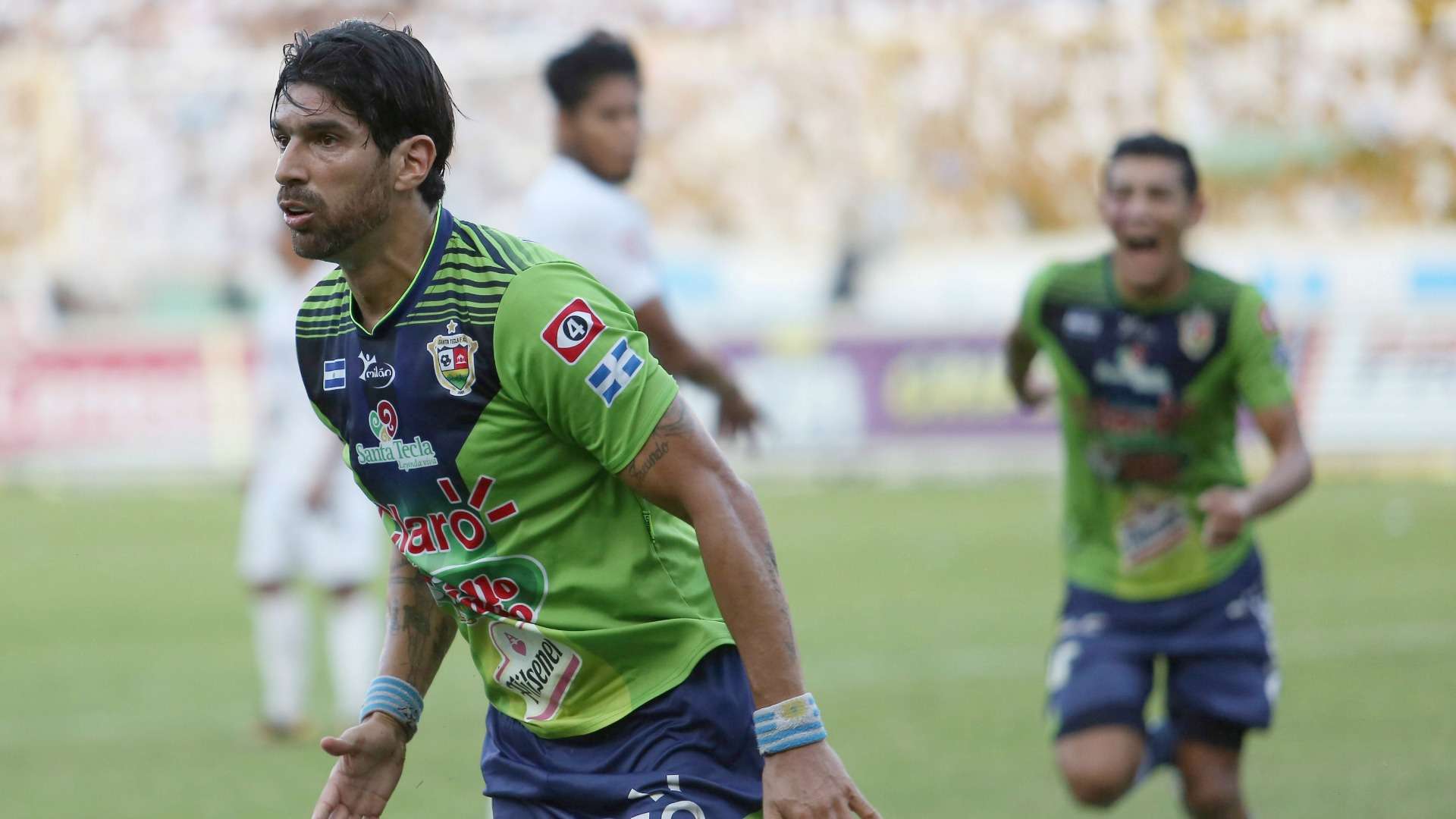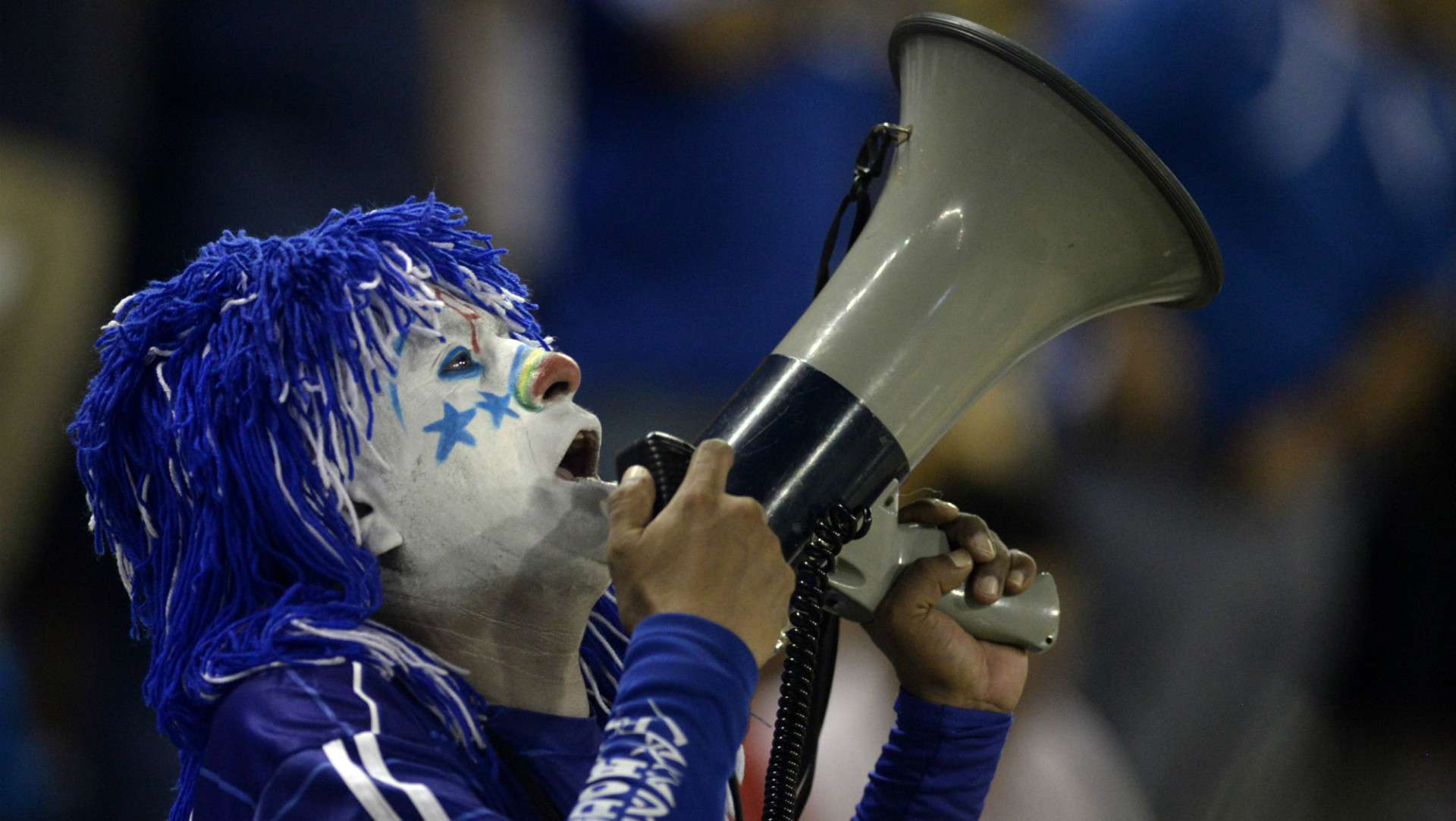Few football clubs have been unaffected by the financial crisis caused by coronavirus.
Many have had to scale down transfer plans and cut staff wages, while others have been forced to put key players up for sale and let some employees go.
In El Salvador, however, two top-flight sides have gone further, giving away their spots in the Liga Pepsi for the coming season.
The story has created a national sporting scandal, only exacerbated by the decision to strip the 2020 league leaders of a title they had been awarded less than a month previously.
Nayib Bukele, the charismatic, ideologically ambiguous President of El Salvador, has overseen one of the world's most extreme reactions to Covid-19.
The nation entered almost total lockdown three days after registering its first case on March 18, although football and other sporting activities had already been suspended the previous week. Thousands have since been arrested for breaking government-imposed curfew, which has only been partially relaxed in recent days following almost two months under a state of emergency.
Bukele's hardline measures are in sharp contrast to the more hands-off approach adopted by neighbour Mexico, and even more so next to Nicaragua, which continues to dispute the national championship alongside fellow outliers Belarus and Tajikistan.
However, El Salvador's strict stance has come at a price: clubs were in a far from ideal state prior to the lockdown and the restrictions have made it near-impossible for many to continue paying salaries.
In response to the crisis, Independiente and El Vencedor took the drastic step of giving up their places in the Primera. Firpo and Atletico Marte were the lucky recipients, despite the fact that neither occupied promotion places in the second division when the league came to a halt – indeed, Firpo languished in the third tier after suffering relegation in 2019.
“This is a donation,” El Vencedor president Marlon Claros explained to Los Provocadores, adding that he chose Atletico Marte to occupy his club's spot because he is a fan of the eight-time champions.
Unsurprisingly, the news went down like a lead balloon elsewhere in the second division, not least because Hugo Carrillo, who had the final word on the "donation" as president of El Salvador's FA (Fesfut), is also a director of Atletico Marte.
“Only a director who is fond of dirty tricks could like the giving up, gifting and lending of league places,” fumed Carlos Burgos, whose Platense side sat in second place when the lockdown hit. “These situations are fixed due to the competition loopholes.
“Nobody believes this tale that Marte were given the league spot for free. The directors play judge, jury and executioner. Now Firpo leaves our credibility on the floor.”
Carrillo has received flak at the top of the table too. Shortly after the Liga Pepsi was suspended, Once Deportivo were declared Clausura champions – quite a feat for a club that only came into existence seven months prior following the folding of predecessor Once Municipal.
 José Cabezas/AFP
José Cabezas/AFP
On April 29, however, the president declared that Fesfut would be going back on that decision, declaring all three Salvadorian divisions null and void and stripping the title from Once Deportivo. Club vice-president Hector Salazar claimed to El Provocador that the news reached them via social media and was still unofficial, and that they planned to fight Carrillo's U-turn.
“These are decisions taken on a whim with flimsy, unsubstantiated arguments,” he fired, “based on a tweet, because that's how things are done now in our country. We feel offended and disappointed."
Salazar added that Once could lose up to $100,000 in sponsorship or even face legal action as a result of the confusion, while El Salvador's National Sports Institute president Yamil Bukele – brother to the head of state – also slammed the move, wondering aloud, "How could someone think about putting money into football if there is no planning?”
For the players, meanwhile, the pandemic has only heightened the sense of uncertainty surrounding their source of income. Maxi Martinez, 27, saw his Chalatenango contract abruptly terminated shortly after the outbreak and remains stranded in San Salvador while he waits to be repatriated by the Argentine government.
“I arrived here on January 15 and we went almost two months without being paid. In total, I was paid three months out of five, including severance money. It's crazy,” Martinez told La Nacion from San Salvador. “The board that just left [the club] left me in the streets, they asked for my apartment key back. The situation is delicate, the club was run very informally.
“I saw terrible things here, unbelievable in professional football... There are dressing rooms in which all 18 players cannot fit. You have to see it to believe it.”
A tiny nation – indeed, the smallest on the entire American continent – packed between Honduras and Guatemala on the landward side and the vastness of the Pacific Ocean on the other, El Salvador rarely makes the headlines. When it does, it is invariably for unwanted reasons: endemic gang violence, which has given the nation the dubious honour of the world's highest homicide rate.
Although both actually originated in Los Angeles, the Mara Salvatrucha (MS-13) and 18th Street gangs use El Salvador as a key base of operations, boasting thousands of members. Government responses have ranged from negotiation and containment to outright confrontation – neither approach has succeeded in reducing the groups' power or appetite for violence.
Such is the shadow cast by the two disputing clans that, upon arriving in El Salvador to line up for Santa Tecla in 2016, legendary wandering Uruguay striker Sebastian Abreu found that he was banned from using his favoured No.13 shirt due to its gang connotations. El Loco instead opted for 22, the number of clubs he had accrued over the course of his career.

MS-13 and 18th Street members are also known for their full-body tattoos, something that caused the unsuspecting Martinez no little trouble when he entered El Salvador.
“Walking around or in a mall, people would look at my tattoos, I have to hide my arms,” he added to La Nacion. “That was my big problem.
“You can't live with that paranoia. I regretted my tattoos living here. The day I arrived the police had me locked up for an hour. The tattoo issue was tough in the airport, a pretty scary anecdote.”
The flamboyant Bukele – who is known for announcing his government's decisions via his personal Twitter account and who sent the armed forces into El Salvador's parliament in February after officials refused to sanction a loan to fund the purchase of new military equipment – has chosen MS-13 and other such groups as his new primary adversaries.
At the end of April, the president signed a decree allowing lethal force to be used against suspected gang members, while Bukele himself released photos that showed hundreds of prison inmates stripped to their underwear and crowded in cages.
He had previously trod a more cautious path with gang violence. Certain reports claim that as mayor of San Salvador he had brokered truce talks, but the head of state's most recent actions have caused an outcry from human rights groups, as well as raising concerns about the spread of coronavirus in overcrowded prisons.
It is a testament, then, to football's enduring appeal that faced with such adversity, both the day-to-day threat of rampant violence and this new, invisible enemy, the sport retains its privileged place in Salvadorian hearts.
On Monday, in spite of all the obstacles, every Primera club was able to meet the league's solvency requirements to gain clearance to compete in 2020, while the national team is currently on course to pip Canada to a spot in the 'Hex' as one of the six best teams going into CONCACAF World Cup qualifying – the first step towards what they hope will be their first finals since 1982.
“You guys, more than anyone else, know as a society how to overcome adversity,” Abreu signalled to his Salvadorean fans at the start of the pandemic, and it is difficult to argue with the Uruguayan's sentiments.
The central American nation's football may lack funding, organisation, infrastructure and transparency, but the motivation is there to keep fighting – no matter what troubles may loom on the horizon.
